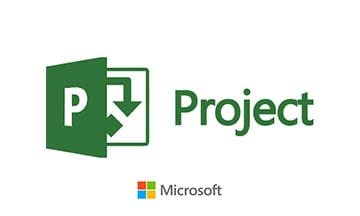Project Quality Management
Course Overview
What is meant by project quality?
Project quality management is the functional process of measuring the quality of project activities. This is done to ensure that the inherent characteristics of the project output/deliverable fulfil the requirements as per the client’s expectations. While ‘quality’ may imply perfection, it implies the ultimate characteristics of a project, that matches customers’ or stakeholders’ expectations. The final quality must match their needs and wants from the project. Therefore, quality can vary vastly from project to project, depending on the agreement of stakeholders.
Who is responsible for project quality?
To ensure the expected quality requirements are met, you must identify and document the needs of the customer/stakeholder. This is the project quality manager’s responsibility. They ensure quality expectations are met to sign and agreed on specifications. This, could also potentially mean that it could be possible to have a high-quality, low-grade product, however, it is never acceptable to have a low-quality, any-grade product.
Modern quality management and project management are complementary. Quality management is not an event, but a process of consistently delivering high-quality products or services. It is a continual sequence of measuring quality, updating processes, and establishing the right controls over and over again until the desired quality is achieved.
This Zoe training course will endeavour the professionals to learn and, understand the fundamental concepts and understanding of Quality planning and its importance in Project Management. By undertaking this course, you will gain detailed information and knowledge about all aspects necessary to understand project quality management to be able to perform optimally. It will give you a perspective on quality planning principles and success drivers, and describe the best practices that firms are using today. You will be able to identify the relevant business process, tools, and people capabilities, that are critical to ensuring an efficient and successful demand planning function.
Course Objectives
- Understand the main principles of project quality and how to integrate quality management into the entire project life cycle.
- Understand and familiarize with the steps to assess the current quality capabilities, and establish standards to improve the organisation’s quality benchmarks to ensure that projects will meet specified quality standards.
- To improve the quality of provided and services provided to customers/stakeholders, and members, through evaluating results relative to established goals and benchmarks.
- To identify the appropriate resources needed to support the quality management program
- To ensure adherence to all regulatory requirements, and to achieve and manage accreditation and necessary certification.
- To develop monitoring dashboards, through the use of project quality control tools.
- Establish a platform for process improvement that results in new customers and/or increased benefits realized by existing customers.
- Provide a mechanism for management, monitoring, and control to help keep a project on schedule.
- Learn the application of project quality tools and techniques to real-life project management situations.
Training Methodology
This collaborative Project Quality Management will comprise the following training methods:
- Lectures
- Seminars & Presentations
- Group Discussions
- Assignments
- Case Studies & Functional Exercises
Like all our acclaimed courses, this program also follows the ‘Do-Review-Learn-Apply’ model.
Organisational Benefits
Organisations can benefit from this course in the following ways:
- Greater customer focus through a greater understanding of the customer requirements and needs of the project deliverables
- Enhanced customer satisfaction, through a quality management system, that ensures that the customer requirements are met
- Integration and alignment of all project activities towards the achievement of project scope
- Facilitating the achievement of quality products/services
- A quality management system that can establish consistency in project activities, and boost the effectiveness
- The quality discipline defines the efforts directed towards process improvement, that ensure maintaining consistency, reduce costs, and ensures a prompt schedule
- Continuous measurement of Quality Controls ensures proactive management and/or quick response to reactive management of defects/failures
- Cost minimization through a reduction in wastage and error
- Improved profit margins and accelerating growth
- Typically, employees prefer to work for companies with high ethics and integrity that offer quality products and services. If employees feel that they are making a real difference to the world with their daily activities, it brings in them a sense of purpose
Personal Benefits
- Develop a deep understanding of the practices and skills needed to succeed in a project quality management role
- Establish the foundational knowledge of the philosophy, the approach, and the methodology of Project Quality
- Develop greater skills and understanding to effectively manage Project quality, Stakeholder and customer expectations, and communications within the organisation
- Develop time and organisation management skills, that will help implement high-quality work
- Develop sound judgment and decision-making skills, using the data analysis skills
- Increase the experience and confidence to train other professionals and project team members, on industrial quality-oriented best practices
- Develop better skillsets and capabilities to introduce advanced processes and concepts, and to be able to successfully handle the role, with the least effort
- Enhance their perspective and foresight to effectively assess future risks, and recommend sound recommendations
- Develop quality project documentation and roll it out throughout the organisation
- With technology rapidly evolving in today’s world, stay up to date on best practices and industry trends, and upcoming changes in the new age
- Establish a major step in your career developing the skills, techniques, and confidence to work effectively in a project management environment
Who Should Attend?
- Business Leaders who wish to understand the fundamentals of Project Quality Management, and methodologies, and learn about the industry trends and best practices
- Project Managers, Project Administrators, Projects Coordinators, and Project Team Members that will be benefit from early exposure to Project Quality Management methodology and principles
- Project Managers/Scrum Managers who wish to develop Project Quality Management skills and implement best practices of project management
- Project team members who wish to learn on how to manage small Projects within the Functional/Business area through the understanding of quality
- Any Individuals/professionals wishing to pursue the Project Quality certificate, and move on to achieving Project Management certification
Course Outline
The course will cover the following areas:
Module 1: Overview of Project Management
- Introduction to Project Management
- Project management framework Characteristics of Projects
- Definition of a Project Manager
- Role of a Project Manager
- Role of a Project Quality Manager
- Stages of Project Lifecycle
- Project vs Program vs Portfolio Management
Module 2: Managing Project Quality
- What is Quality
- Quality in Project Context
- Quality and the Constraints
- The evolution of quality
- Quality within a Project life-cycle
- The evolution of quality
- Systems thinking
- The cost of quality
- Formal quality systems
Module 3: Planning Project Quality
- What is quality planning (QP)?
- Quality Policy
- Project quality standards
- Scope Statements
- Stakeholders and customers
- Prioritization
- Benefits/Cost Analysis
- Benchmarking
- Flow Charting
- Process Mapping
- Quality Management Plan
- Operational Definitions
- Planning checklists
Module 4: Assuring Project Quality
- Quality Assurance definitions
- Measurement Analysis of Quality Controls
- QA Tools and Techniques
- Quality path vs. critical path
- Quality Assurance Audits
- Developing QA Audit activities
- Investigating QA capabilities
- Gap analysis
- SWOT analysis
- Process improvement
- Project quality improvement plan
- QA and change control
- QA outputs
Module 5: Controlling Project Quality
- Quality Control (QC) definitions
- Inspection
- Control/Run Charts
- Scatter diagrams
- Pareto Diagrams
- Histograms
- Check sheets
- Statistical Sampling
- Trend Analysis
- Voice of the customer (VOC)
- Voice of the Process (VoP)
Module 6: Continual Improvement
- “Good enough” approach
- Taguchi’s loss function
- Quantum innovation vs. continuous improvement
- Plan-do-check-act (PDCA) cycle
- Basic quality control toolkit
- Cause-and-effect diagrams
- Interrelationship digraphs
- Design of experiments
Module 7: Governance & Quality
- Governance Structure
- Planning/Delivery of Project Assurance reviews
- Planning/Delivery of Project health checks
- Planning/Delivery of Project Audits
- Project progress monitoring and status challenge
- Program data analysis and management reporting overview
Module 8: Case-Scenarios and Simulations
- Case examples
- Project Quality Tools in a Project Quality simulation environment
- Project Audit simulation
- Development of Quality Tools for independent various case studies











